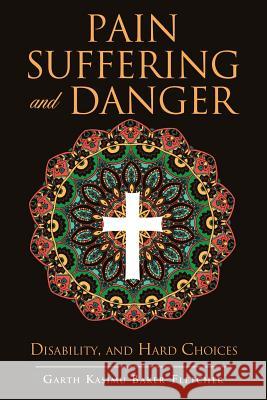Pain Suffering and Danger » książka
Pain Suffering and Danger
ISBN-13: 9781498462471 / Angielski / Miękka / 2016 / 252 str.
As Christians of all kinds, how do we deal with issues of believing in God, despite going through staggering pain, suffering, and disability? Guided by his own experiences of the way in which pain and suffering can become disability, Baker-Fletcher writes from the position of one grounded in his actual crippling experiences of agony. Sometimes we must learn to live with pain and suffering. To help us to reflect on our own disabling experiences he includes a section of theological reflection technically called a "theodicy;" however even that is in the service of helping Christians to live out lives of action and engagement. Some theological reflections try to give us "answers" to explain our pain, but many are just plain dangerous. Actually, we must face the difficult choice of exuding God's love to everyone, or merely wasting away. We can choose to work toward fulfilling our destiny as called to minister to all kinds of people, or not. We choose not to let overcoming obstacles to overcome us because we cannot help but to be living witnesses of God's healing love for everyone. Garth Kasimu Baker-Fletcher is a Harvard Divinity School educated writer, teacher, preacher, and Gospel singer. He has written six previous books on issues as different as dealing with: the transforming power of God's love for developing in civil rights protestors a sense of "Somebodyness" and dignity; to the controversies surrounding the Million Man March. His thoughts range from consideration of how hateful lives of racists have tried to prevent us from developing a healthy country, and enjoyment of all citizens to share our life's journeys with each other, Also, he has written moral theories about how one can never choose any important moral action without getting our hands "dirty" by the complexity of life itself. Finally, he has considered how the Bible is the lasting liberating bond of black churches, and the basis for doing liberating ministry. Now, his reflections on disability bring together many of those previous themes as active ways to live out the Christianity we claim to believe. Though we may be blind, deaf, impaired, or multiply-challenged at every turn, Baker-Fletcher holds that God is still calling us to serve the world, and teach ourselves and others how to love.











